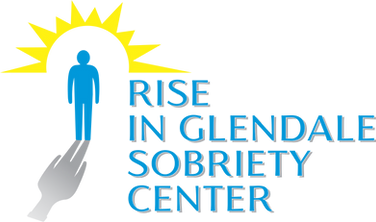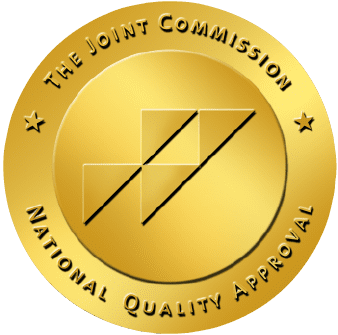Benzo Detox
in Los Angeles
Welcome to Rise Sobriety, nestled in the vibrant heart of Los Angeles, California. Here at Rise Sobriety, we understand the complexity of benzodiazepine addiction and offer a sophisticated, medically supervised detox program designed to ease clients through the withdrawal process with the utmost care and professionalism. Recognizing the significant challenge that benzo dependency poses to daily life and mental health, our program is tailored to provide a supportive, healing environment where clients can confidently begin their journey toward recovery.
Understanding
Benzodiazepine Addiction
Benzodiazepines, often referred to as benzos, are a class of psychoactive drugs prescribed primarily for managing conditions such as anxiety, insomnia, and seizures. These medications work by enhancing the effect of the neurotransmitter gamma-aminobutyric acid (GABA) at the GABA receptor, resulting in sedative, hypnotic (sleep-inducing), anxiolytic (anti-anxiety), anticonvulsant, and muscle relaxant properties. While they are highly effective for short-term management, their long-term use can lead to increased tolerance, dependence, and, eventually, addiction.
Chronic use of benzodiazepines can lead to physical dependence, where the body requires the drug to function normally. This dependence can have a profound impact on an individual’s mental and physical health, disrupting personal relationships, work commitments, and social interactions. Dependence is often accompanied by tolerance, where higher doses of the drug are needed to achieve the same effect, and withdrawal symptoms, which can occur when the drug is reduced or discontinued.
Signs You need a
Benzo Detox
Recognizing the signs that you might need a benzodiazepine detox is essential for addressing benzodiazepine use disorder effectively. Here are detailed indicators that suggest a detox might be necessary:
Increased Tolerance
One of the most common signs of needing a benzo detox is an increased tolerance to the drug. This occurs when you need to take larger doses of benzodiazepines to achieve the same effects that smaller doses once provided. Increased tolerance is a physiological adaptation where the body becomes accustomed to the drug, demanding higher quantities to feel the same level of calm or sedation.
Withdrawal Symptoms
Understanding the range of withdrawal symptoms associated with benzodiazepine detox is crucial for preparing both psychologically and physically for the detoxification process. These symptoms can vary widely in severity and duration, depending on the length of benzodiazepine use, the dosage, the specific benzodiazepine taken, and individual health factors. Here is a detailed look at common and severe withdrawal symptoms:
Common Withdrawal Symptoms
- Anxiety and Panic Attacks: Increased levels of anxiety, including panic attacks, are among the most common symptoms of benzodiazepine withdrawal. These can feel more intense than the anxiety that initially led to benzodiazepine use.
- Sleep Disturbances: Insomnia and disrupted sleep patterns are frequent during detox. Individuals may experience difficulty falling asleep, staying asleep, or suffering from restless, unsatisfactory sleep.
- Irritability and Mood Swings: Mood instability is common, with individuals often experiencing rapid mood changes from irritability to sadness or even temporary euphoria.
- Physical Tremors: Hand tremors or shaking of other body parts can occur, often exacerbated by anxiety or physical exertion.
- Sweating and Hot Flashes: Fluctuations in body temperature leading to sweating or hot flashes are common as the body adjusts to the absence of the drug.
- Muscle Pain and Stiffness: Withdrawal can cause muscles to feel sore, stiff, or unusually weak, contributing to physical discomfort during the process.
- Headaches: Persistent or intermittent headaches are a common symptom, which can range from mild to debilitating.
- Nausea and Abdominal Pain: Gastrointestinal issues such as nausea, vomiting, or abdominal cramps can occur as the body reacts to the lack of benzodiazepines.
- Concentration Difficulties: Many individuals experience cognitive impairments during withdrawal, including trouble concentrating, memory problems, and a sense of mental fog.
Severe Withdrawal Symptoms
- Seizures: One of the most dangerous aspects of benzodiazepine withdrawal is the risk of seizures, which can occur without prior history of epilepsy, particularly if the detox process is abrupt or improperly managed.
- Psychosis: In rare cases, individuals may experience psychotic symptoms such as hallucinations, delusions, or severe paranoia.
- Depersonalization and Derealization: A feeling of detachment from one’s self or the environment, these symptoms can be distressing and disorienting.
- Increased Sensitivity: Heightened sensitivity to light, sound, and physical contact can occur, often making everyday environments feel overwhelmingly intense.
- Suicidal Thoughts: The emotional and psychological stress of withdrawal can lead to feelings of despair or suicidal thoughts, requiring immediate professional intervention.
Unsuccessful Attempts to Cut Back
If you’ve tried unsuccessfully to reduce your benzodiazepine usage on multiple occasions, it may be time to consider detox. The cycle of intending to quit or cut back but being unable to do so despite your best efforts is a hallmark of addiction and dependency.
Compulsive Use
Compulsive use is a critical sign of addiction. It is characterized by a powerful urge to use benzodiazepines that is difficult to resist and results in consuming the drug more frequently or in larger amounts than intended.
Physical or Psychological Problems
The continuous use of benzodiazepines despite having persistent or recurrent physical or psychological problems exacerbated by the drug—such as memory impairment, depression, or anxiety—indicates a need for professional intervention. Often, users may continue taking benzodiazepines to avoid the discomfort of withdrawal, despite knowing that it worsens their health.
Recognizing these signs is the first step toward recovery. Benzodiazepine detox should ideally be managed in a professional setting like Rise Sobriety, where medical and psychological support can guide you through the withdrawal process safely and effectively. If you or someone you know is exhibiting these signs, it may be time to seek help.
Why Choose Rise Sobriety Center
for Heroin Addiction Treatment
Expert Medical Team
At Rise Sobriety, our detox programs are overseen by a highly trained medical team skilled in addiction treatment. Each member of our medical staff brings a deep understanding of the physical and psychological challenges associated with benzodiazepine withdrawal. They provide around-the-clock care, ensuring that detoxification proceeds safely and as comfortably as possible, managing symptoms with the most effective, up-to-date medical interventions.
Tailored Detox Programs
We recognize that each client’s journey to recovery is unique, influenced by their medical history, the duration and severity of benzodiazepine use, and the presence of any co-occurring mental health disorders. Therefore, our detox programs are highly personalized. We begin with a comprehensive assessment to design a detox plan that not only addresses the medical aspects of withdrawal but also the psychological challenges that may arise during the process.
A Healing Environment
Rise Sobriety is designed to feel like a refuge from the stressors of the outside world. Our facility offers comfortable, homelike environments with spaces dedicated to therapy, relaxation, and reflection. We believe that a calming, supportive setting is crucial to the recovery process, helping clients focus fully on their recovery without external pressures.

Our Benzo Detox
Process
At Rise Sobriety, we understand that the journey to recovery from benzodiazepine addiction is deeply personal and often challenging. Our benzo detox process is designed to provide the safest, most comfortable experience possible, utilizing a comprehensive, client-centered approach. Here’s a detailed look at each step of our detox process:

Initial Assessment and Intake
Upon arrival at Rise Sobriety, each client undergoes a thorough initial assessment. This comprehensive evaluation includes medical, psychological, and social assessments to gather a complete picture of the individual’s health, history of benzodiazepine use, and any co-occurring disorders. This information is critical for developing a personalized detox plan that addresses all aspects of the individual’s needs.

Development of a Personalized Detox Plan
Based on the initial assessment, our team of addiction specialists, including physicians, nurses, and therapists, collaborates to create a tailored detox plan. This plan outlines the medical interventions, therapeutic approaches, and support systems that will be utilized during the detox process. It also sets clear, realistic goals for both the detox phase and the ongoing recovery process.

Medical Supervision and Withdrawal Management
Detox from benzodiazepines can lead to severe withdrawal symptoms that require careful management. Our medical team closely monitors clients around the clock, administering medications as needed to safely manage withdrawal symptoms and prevent complications. Medications may include benzodiazepine tapers, which gradually reduce the benzodiazepine dose, or other medications approved for managing specific symptoms like insomnia, anxiety, or acute withdrawal-related seizures.

Supportive Care and Therapies
In addition to medical management, supportive care is a cornerstone of our detox process. Clients have access to a variety of therapeutic modalities, including individual therapy, group therapy, and family counseling. These therapies are designed to help clients process the emotional and psychological challenges of detox and prepare for the next steps in their recovery journey. Holistic therapies such as yoga, meditation, and nutritional counseling are also integrated to support overall well-being and stress reduction.

Aftercare Planning
Successful detox is just the first step in the journey to recovery. Our comprehensive aftercare planning ensures that clients leave with a detailed plan that addresses their continued recovery needs. This plan typically includes recommendations for ongoing therapy, support groups, and any other resources necessary to support long-term sobriety and health.
Our benzo detox process at Rise Sobriety is designed to not only safely manage the medical aspects of withdrawal but to also address the psychological and emotional challenges associated with benzodiazepine cessation. By providing a structured, supportive, and understanding environment, we help our clients build a solid foundation for their recovery journey.

Life After Detox
Next Steps at Rise Sobriety
Transitioning to Rehabilitation
Detoxification clears the immediate physical dependence on benzodiazepines, but it is not a cure for addiction. To support long-term recovery, we encourage clients to transition into our benzo rehabilitation program, which addresses the psychological underpinnings of addiction through intensive therapy and support groups.
Long-term Recovery Support
We provide ongoing recovery support designed to help clients navigate the challenges of life post-detox. Our rehab center’s aftercare programs include continued therapy sessions, relapse prevention education, and alumni support groups, ensuring that our clients have access to the resources they need to maintain long-term sobriety.
Family Involvement and Support
Family plays a pivotal role in the recovery process. At Rise Sobriety, we involve families through dedicated family therapy sessions and educational programs. These initiatives help build a strong support network, crucial for the client’s recovery journey, by improving communication and understanding among family members about the nature of addiction and the ways to support sobriety.

Get Started with Your Benzo Detox
In Los Angeles
Embarking on a detox program is a significant step towards reclaiming your health and life from benzodiazepine addiction. At Rise Sobriety, you will find a team of compassionate professionals dedicated to providing the highest standard of medical and psychological care for lasting recovery. We invite you to join us on this journey to recovery and experience the supportive, nurturing environment of Rise Sobriety. Get in touch with us today to learn more.
Your Journey to Living a Life Free of Addiction, Starts Here!
Frequently Asked
Questions
Benzodiazepine detox involves medically supervised benzo withdrawal in a controlled, clinical setting. This process helps manage withdrawal symptoms that can range from mild anxiety to more severe symptoms like seizures, ensuring safety and comfort throughout.
The duration of the detox process at Rise Sobriety varies depending on individual factors such as the type of benzodiazepine used, duration of use, dosage, and the individual’s overall physical and mental health. Typically, detox can last from a few days to a couple of weeks.
During detox at Rise Sobriety, clients receive comprehensive support including medical supervision to manage withdrawal symptoms, psychological support to address anxiety and other emotional issues, and access to comfort measures like pain relief and hydration therapy. Additionally, our staff provides continuous reassurance and guidance throughout the drug detox process.
Yes, Rise Sobriety offers extensive outpatient drug rehab services to ensure continued support after the completion of the detox program. These benzo addiction treatment services include individual therapy, group counseling, medication management, and holistic therapies designed to support long-term recovery and prevent relapse.
Indications that you might need to detox from benzodiazepines include dependency indicated by withdrawal symptoms when not using the drug, inability to stop using despite a desire to do so, and continued use despite awareness of negative consequences. A medical assessment can help determine if detox is necessary based on your specific circumstances.

